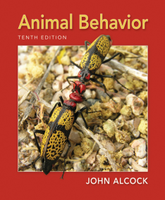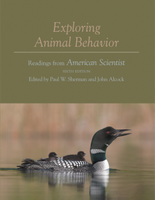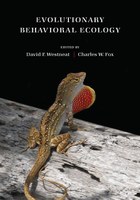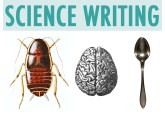Courses taught by Dr. Balshine
Psych 3T03: Behavioural Ecology

A third year undergraduate course devoted to understanding the diversity of animal behaviour in terms of evolution and ecology. This course covers social behaviour from the perspective of evolutionary theory. Topics include aggression, altruism, kinship, parent-offspring interactions, sex and reproduction. The aim of this course is to further build on the theoretical foundations of the 2nd year Animal Behaviour and Learning Courses Psych 2TT3 and PNB 2XC3. In this course we will cover some basic but mostly advanced behavioural ecology theory using empirical examples and focusing on key research findings. During the course we will examine various aspects of animal behaviour and consider why such behaviour evolves, and how this behaviour may enable animals to adapt to their environments
Text: Animal Behavior: An Evolutionary Approach, 2012. John Alcock, 10th edition. Sinauer
Psych 3S03: Animal Behaviour Lab Course

A third year course in which you will have the opportunity to have hands on experience with animals and their behaviour. In the course you will be asked to design and conduct experiments as well as analyze the data you collect. If you take this course you will develop a better appreciation for animal behaviour, have an opportunity to learn and hone observational techniques, apply these observational skills to test theoretical hypothesis. You will also get a chance to analyze data, interpret the results, and communicate your findings. This course is also taught by Dr. Reuven Dukas in the Department of Psychology, Neuroscience and Behaviour.
Psych 4R03: Special Topics in Animal Behaviour

An advanced fourth year seminar course based on various advanced topics in animal behaviour. Both theoretical issues and empirical examples will be discussed. A focus will be placed on how new genetic, physiological, and mathematical modeling techniques have influenced the modern study of animal behaviour. This is an advanced discussion-based course drawing on foundations presented in other Psychology and Biology courses. An evolutionary perspective will be emphasized and used to explore aspects of how animal behaviour influences individual survival and reproduction. As a student in this course, you will be provided with ample opportunities to read primary sources, be expected to contribute to class discussions, work in small groups, make presentations, and improve critical thinking and verbal communication skills.
Psych 728: Advanced Topics in Behavioural Ecology and Scientific Writing

A graduate level course dealing with topics and writing techniques important for behavioural ecologists. This course is team-taught with Dr. Jim Quinn in the Biology Department. In this course, students will have an opportunity to learn how to write a grant proposal, apply for funding for research or conference funding. Students will also have a chance to design, conduct and collaborate on a scientific review as well as improve their scientific writing and presentation techniques. The course is open to any graduate student in Biology or Psychology, Neuroscience & Behaviour. While in depth knowledge of behavioural ecology is not essential, an appreciation and strong interest in animal behaviour is.
Psych 720: Contemporary Problems in Psychology, Neuroscience & Behaviour
 A year-long graduate level course that includes six content modules, each three weeks in duration. Interspersed among these six modules are a series of professional development activities that focus on knowledge and skills that are unique to study at the graduate level. Classes run for three hours once a week. The course is team-taught and the course coordinator is Dr. Bruce Milliken. The course has three aims. The first aim of the course is to give incoming graduate students a breadth of knowledge across the many areas of research represented in the department. A second aim is to teach the analytical and communication skills needed for a successful scientific career. The third aim is to raise student awareness to some Professional Issues that are of increasing importance to graduate student researchers.
A year-long graduate level course that includes six content modules, each three weeks in duration. Interspersed among these six modules are a series of professional development activities that focus on knowledge and skills that are unique to study at the graduate level. Classes run for three hours once a week. The course is team-taught and the course coordinator is Dr. Bruce Milliken. The course has three aims. The first aim of the course is to give incoming graduate students a breadth of knowledge across the many areas of research represented in the department. A second aim is to teach the analytical and communication skills needed for a successful scientific career. The third aim is to raise student awareness to some Professional Issues that are of increasing importance to graduate student researchers.
